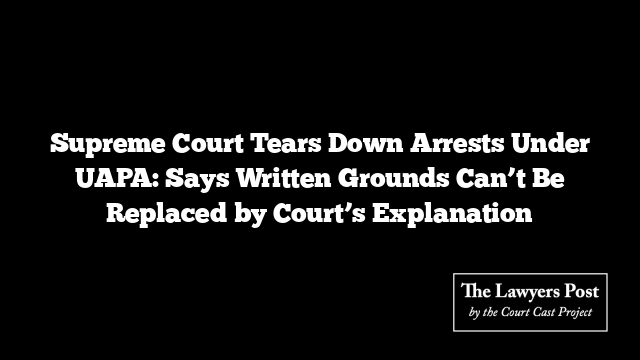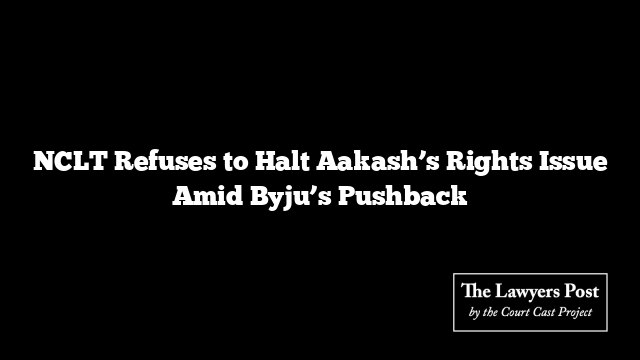In a ruling that reasserts procedural fairness over investigative convenience, the Supreme Court has struck down the arrest and remand of three individuals accused under the Unlawful Activities (Prevention) Act (UAPA) and sections of the Indian Penal Code, holding that the authorities failed to provide written grounds of arrest—a safeguard the Court called “non-negotiable.”
A bench comprising Justices M.M. Sundresh and Vipul M. Pancholi dismantled the Madras High Court’s earlier stance that the remand report, if containing reasons for the arrest, could substitute the written communication required under Section 43B of the UAPA. The apex court declared this interpretation “untenable,” underscoring that a verbal or courtroom explanation cannot cure the omission.
“The explanation by the Court before whom the arrestees are produced can never be an adequate compliance,” the bench asserted, stressing that the obligation lies with the arresting authority, not the remand judge.
The ruling emerged from a plea by individuals accused of unlawful activities and conspiracy, including alleged links with the Hizb-ut-Tahrir (HuT) organization. Authorities had claimed that one petitioner used his YouTube platform to promote the establishment of an Islamic regime in India. The accused were booked under Sections 153A, 153B, 120B, and 34 of the IPC, along with Sections 13 and 18 of the UAPA.
Their central grievance: that no written grounds of arrest were ever handed to them—neither at the moment of arrest nor afterward. The National Investigation Agency (NIA) countered that the reasons were orally explained by the magistrate and shared with their counsel during remand proceedings.
The Supreme Court found that this approach fundamentally violated procedural safeguards. Referring to precedents in Pankaj Bansal v. Union of India, Prabir Purkayastha v. State (NCT of Delhi), and Vihaan Kumar v. State of Haryana, the Court reaffirmed that written communication of arrest grounds is a mandatory right—not a courtesy.
“The appeal deserves to succeed solely because the mandate to furnish written grounds of arrest was not met,” the Court declared, setting aside both the High Court’s order and the arrest itself.
Yet, the ruling left the door open for fresh action—authorities may proceed with a lawful arrest if warranted.




